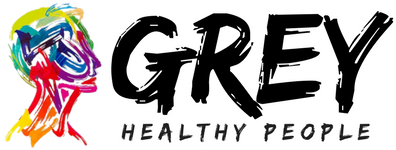When you think about how you’re spending money, what comes to mind first? Big expenses—think rent, car payments and household bills—probably come to mind first. People looking to save more money might be tempted to focus on these costs first.
But every day we spend money on little things that could end up costing us hundreds or even thousands by the end of the year. Often, these small expenses are tied to bad habits. If we could just break these, it could make a big impact on our savings accounts!
Here are eight of these bad habits that could be costing you money.
- Daily Takeaway Coffees. This is one vice that many people can relate to. Ordering coffee-to-go may only cost a few dollars a day, but that small amount spent can significantly add up. If your morning coffees cost $5.00 a cup, you’ll spend around $1,300 by the end of the year. Now that’s a lot of beans! Try brewing coffee at home before you go or wait until you’re in the office for that first cup.
- Eating out at Lunch. This is another habit that could be costing you more than you think. A sandwich here, sushi there—a quick lunch may only be around $10 each time you order, but it can quickly add up whether you’re eating out every day or just a few times a week. Bringing lunch from home could help the savings stack up, especially if you bring leftovers from dinner the night before.
- Keeping a Gym Membership. Gyms often make a lot money off people that sign up but never actually attend the gym. We all have good intentions when we join, and it may seem like we’re giving up on our health by cancelling that membership. With the average annual gym membership costing hundreds of dollars, it’s probably best to take a “use it or lose it” approach to this expense. There are plenty of alternative for getting fit without the gym, which will probably cost a lot less too.
- Smoking. This is on most bad habit lists for good reason. Not only is smoking a truly bad habit, it can cost you money in more ways than one. Smoking a pack a day in New Zealand can cost around $10,800 NZD per year—that’s a lot of money that could be going into savings! However, it’s not just the price of cigarettes that can cost you. Life and funeral insurance in NZ and around the world are often partly based on if someone smokes. Smokers typically pay more for their insurance, another way that quitting could put more money in your pocket.
- Making Multiple Trips to the Supermarket. This doesn’t sound like a bad habit that could be costing you money. However, making multiple trips to the shops throughout the week could be costing you hundreds or even thousands over the course of a year. When you commit to making just one grocery trip each week, you’ll probably do a fair amount of planning to make sure you get everything you need and may be more likely to stick to your list. When you don’t, every time you go to the market you could end up with things you may not necessarily need, like treats or food you already have at home. Plus, each time you visit the shops, you’re using more petrol or spending more on public transport.
- Relying on Fast Food and Takeaway. We naturally assume that fast food is cheap food, but that’s not always the case. Ordering from your favourite local pizza shop or Chinese restaurant might cost more than making a home cooked meal. Even if the food itself is cheaper than what you can make at home, it might be costing you in other ways. Those burgers and fries from the drive thru are cheap, but they’re also high in calories and low in nutrients. That could mean paying more in the long run on things like healthcare and medications due to weight gain, high cholesterol and other serious health conditions. Next time you think about hitting the drive thru, maybe consider cooking something healthier and tastier at home instead.
- Drinking Bottled Water. Grabbing a quick bottle of water on the go has become a normal part of our daily lives. But what we often forget is that water can be practically free. It doesn’t take much to pack your own bottle to fill up throughout the day. Instead of paying a few dollars per bottle, take advantage of the workplace water cooler, public water fountains or the kitchen tap and fill up your reusable bottle. If you’re concerned about taste, investing in a filter could be an economical way to handle this concern.
- Keeping Unused Subscriptions. This is a big one, similar to unused gym memberships. It used to be that the only subscriptions to keep track of were magazines, and it was easier to remember you had them and decide when it was time to unsubscribe. But now, subscriptions are everywhere. From your TV viewing and music, through to meal kits and even toilet paper, you can subscribe to a service for just about anything! It’s very convenient, but you can also conveniently forget what you’re paying for each month. It might be time to go through your bank statement to see exactly how many subscriptions you have and how much they cost. Any that are sitting unused is probably safe to cancel, and you might be able to scale back on others.
Next time your bank or credit card statement comes in, sit down and work out everything you are paying for. By then prioritising them in order of need, you may realise you’re paying for a lot of unnecessary items. Changing just a few of your daily habits could make monumental shifts to your account balance over time. Tackling the items on this list (or others that are unique to you) one at a time could help these changes stick and boost your savings.




